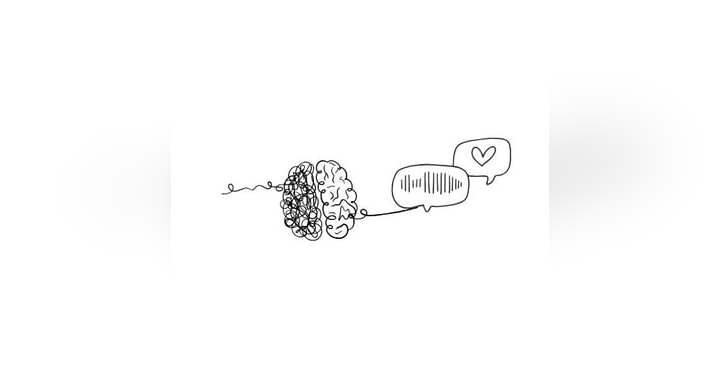Hangxiety Defined
Understanding: Hangxiety Defined
Hangovers are a common occurrence for many people who consume alcohol. While physical symptoms like headaches, nausea, and fatigue are widely known, there is another aspect of hangovers that is less discussed.
Some people, especially women, experience notable feelings of anxiety, unease, and depression along with their hangovers. This phenomenon is sometimes referred to as “hangxiety” or the “anxious hangover”. The anxious hangover state involves a rebound of anxiety and lowered mood as the intoxicating effects of alcohol wear off. This anxiety differs from general stress in that it specifically accompanies the hangover rather than being pre-existing.
It goes beyond normal hangover discomfort to include shame, guilt, and heightened anxiety. The reasons behind this phenomenon are multifactorial, with biological, psychological, and social factors at play. While anyone can experience hangxiety after drinking too much, some people are more prone to it.
Understanding the causes, managing symptoms, and practicing moderation can help minimize anxious hangover feelings. With the right coping strategies, it’s possible to occasionally enjoy alcoholic drinks without suffering severe hangxiety afterward.
This article will examine the ins and outs of the anxious hangover state.
Causes of Hangover Anxiety
Alcohol impacts brain chemistry in complex ways that can lead to rebound anxiety as it leaves the system. Alcohol enhances GABA activity initially, which produces feelings of relaxation and reduces anxiety. However, the brain counters this by producing more excitatory glutamate.
When alcohol wears off, there is too much glutamate and not enough GABA, causing feelings of anxiety and restlessness. Additionally, alcohol alters levels of serotonin and other neurotransmitters involved in mood regulation. As these neurotransmitters rebalance, it can disrupt normal functioning, leading to increased anxiety that is most noticeable during the hangover period.
For those predisposed to anxiety disorders or other mental health issues, this rebound effect and neurotransmitter imbalance can exacerbate underlying conditions. The hangover state essentially makes existing issues worse in terms of anxious feelings and negative thought patterns.
Then anxiety, caused directly by changes in brain chemistry, is compounded by the resurfacing of psychological issues that alcohol may have temporarily suppressed.
Common Symptoms of Hangxiety
The anxiety experienced during a hangover can manifest in various ways. Many report feeling an overwhelming sense of guilt and shame about their drinking or behavior from the night before. This can contribute to anxiety and unease.
Hangovers also frequently lead to poor sleep quality and nighttime waking. Tossing and turning throughout the night exacerbates stress levels and mental unease. The fatigue from a rough night's sleep leaves many feeling on edge. Overall well-being and mood are also diminished during a hangover.
People describe just feeling "off" or emotionally fragile. Small frustrations seem monumental, and it's harder to maintain an even keel. This reduced sense of well-being makes anxiety worse. The combination of shame, poor sleep, and reduced wellbeing all converge to heighten anxiety during the hangover state. The physical symptoms of headache, nausea, and fatigue only further agitate the mental unease. It creates a vicious cycle, making anxiety much more prominent.
Duration of Symptoms
How long the anxious hangover state lasts can vary significantly from person to person. Some factors that influence the duration include:
- Genetics: Some people may be genetically predisposed to longer-lasting symptoms.
- Frequency of drinking: Those who drink more often may experience longer symptoms as opposed to occasional drinkers.
- Amount consumed: Consuming higher quantities of alcohol is linked to more persistent symptoms.
- Mental health: underlying anxiety disorders or depression can prolong the anxious feelings.
- Quality of sleep: Poor sleep can worsen and extend anxiety and unease.
- Hydration levels: Being dehydrated can drag out the symptoms.
- Nutrition: Lack of proper nutrition can contribute to more lingering effects.
- Stress levels: high stress exacerbates anxiety and makes symptoms persist longer.
- Use of other substances: Mixing alcohol with other drugs can increase duration.
So while symptoms may resolve within 24 hours for some individuals, for others the anxious hangover state can last 48 hours or even longer depending on the factors above. Staying hydrated, eating nutritious foods, getting adequate sleep, and avoiding other substances can all help minimize the duration.
Prevention Strategies
The best way to prevent anxious hangover symptoms is to take steps to minimize hangovers in general. This involves drinking in moderation, staying hydrated, eating well, and practicing self-care.
Drink in moderation
Consuming alcohol within recommended limits can help reduce the severity of hangovers and the resulting anxiety. Stick to 1-2 standard drinks per day for women and 2-3 for men. Avoid binge-drinking.
Stay hydrated
Alcohol is a diuretic, so it dehydrates the body. Drink a glass of water between each alcoholic beverage. Before bed, drink extra fluids to replenish electrolytes.
Eat well
Don't drink on an empty stomach. Eat foods rich in vitamins and minerals before and while drinking.
Practice self-care
Get adequate sleep, reduce stress, and make time for relaxation. Take care of both your physical and mental health to cope better with alcohol's effects.
Managing Hangxiety
The key to managing hangover anxiety involves addressing both the physical symptoms as well as the mental anxiety and unease. While physical symptoms may subside over time, mental anxiety often requires more active management.
Relaxation techniques can be very helpful for reducing feelings of anxiety, guilt, and shame. Try deep breathing, progressive muscle relaxation, or guided imagery. Even just taking some time to rest and unwind can calm the mind.
Social support is also important when dealing with hangover anxiety. Confide in a trusted friend or family member. Spending time with positive people can boost your mood. Avoid social isolation, as this tends to worsen anxiety. Practicing self-compassion is vital.
The anxious, uneasy feelings are temporary and do not define you. Be kind, patient, and understanding with yourself. Remind yourself that you are human and allowed to make mistakes. Focus on healthy coping rather than self-blame.
Overall, a multifaceted approach works best. Address any lingering physical symptoms, engage in relaxation, seek social support, and most importantly, respond to yourself with gentleness and care. This combination can help minimize the intensity and duration of anxious hangover symptoms. ## Contributing Factors While genetics may play a role in hangover anxiety, environmental and psychological factors also have a strong influence.
Genetics alone cannot fully explain this anxious hangover phenomenon. The environment in which someone consumes alcohol can impact their experience the next day. Drinking in noisy, crowded, or unfamiliar settings can increase anxiety during a hangover. Pre-existing stressors and obligations the following day also contribute.
Psychologically, mental health conditions like anxiety, depression, and trauma can make someone more prone to anxious hangover symptoms. Negative thought patterns and lack of coping skills also play a role. In summary, genetics interact with environmental and psychological influences to shape the anxious hangover experience. DNA is not the only factor that determines it. With proper self-care and coping strategies, the anxious aftereffects of drinking can be managed even in those who are biologically prone.
Differences from Regular Hangovers
This anxious hangover state differs from regular hangovers in that it refers specifically to the anxiety component rather than just physical symptoms. While both can involve headaches, nausea, fatigue, and other physical discomforts, anxious hangovers are characterized by mental and emotional symptoms like unease, guilt, shame, and a sense of dread.
The anxiety stems from alcohol's interaction with brain chemistry and can exacerbate underlying mental health conditions. In a regular hangover, someone may experience dehydration, electrolyte imbalance, inflammation, and other biological effects that lead to physical misery.
An anxious hangover more specifically involves rebound anxiety as the alcohol leaves the body, disrupting neurotransmitters like GABA and glutamate. This can make pre-existing anxiety disorders or mood issues feel much worse.
So while the two may overlap in some ways, an anxious hangover can persist even after physical hangover symptoms subside. Mental and emotional anxiety is the defining characteristic and primary concern, rather than just feeling physically unwell. Understanding this distinction can help those struggling with these anxious after-effects take steps to better cope and manage both the physical and psychological symptoms.
Enjoying Alcohol in Moderation
With mindful drinking choices and proper coping techniques, it's possible to enjoy alcohol in moderation without severe anxiety hangover symptoms. Here are some tips:
Practice mindful drinking by pacing yourself, sipping slowly, and staying hydrated with water between drinks. Be aware of your personal limits.
- Eat a full meal before drinking, and snack during the night. Food can slow alcohol absorption.
- Avoid drinking too late into the night. Stop drinking 1-2 hours before bed.
- Build self-compassion. Don't judge yourself harshly the next day. Everyone overdoes it sometimes.
- Use relaxation techniques like deep breathing, meditation, or yoga. They can calm anxiety.
- Spend time with supportive friends. Social connection relieves stress.
- Stay busy with activities you enjoy. Distraction helps take your mind off symptoms.
- Get light exercise, like walking. It releases endorphins to improve mood.
- Stick to a sleep schedule. Prioritize restorative rest.
With preparation and self-care, it's possible to wake up feeling refreshed instead of anxious after a night of drinking. Be kind to yourself and take it one day at a time. Moderation and mindfulness are key.
Conclusion
Managing the anxiety that arises after alcohol consumption is an important aspect of overall mental health and wellbeing. As we've explored, hangover anxiety is a phenomenon that can occur due to changes in brain chemistry as alcohol leaves the system.
Common symptoms include unease, guilt, shame, poor sleep quality, and reduced wellbeing. While the duration varies by individual, strategies like drinking in moderation, staying hydrated, eating nutritious foods, and practicing self-care can help minimize hangover anxiety.
When symptoms do occur, it's essential to address both the physical and mental components. Relaxation techniques, social support, and self-compassion have been shown to help manage this anxious state. Though genetics may play a role, environmental and psychological factors also influence hangover anxiety.
With thoughtful drinking choices and proper coping mechanisms, it's possible to occasionally enjoy alcohol in moderation without severe anxious after-effects. By understanding the causes, symptoms, and management of hangover anxiety, we can take control of our mental health.












